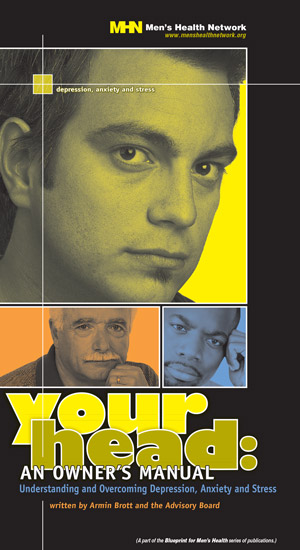Dear Healthy Men: As a wife, daughter, sister, and mother of two boys, I’m surrounded by men. What do I need to know about men’s health?
A: I’ve always maintained that men’s health is a women’s issue, since when men are healthier, their partners become healthier too (along with their children and communities). Here are the basics:
Male-Specific Health Problems
- Testicular Cancer. This is the most common cancer in men ages 15 to 35. Although it can’t be prevented, thanks to improved treatments and diagnostics, it has a very high cure rate if caught early.
- Low T. Testosterone is the most important male hormone, yet millions of men suffer from testosterone deficiency, which, left untreated for too long, is linked with long-term health problems such as loss of muscle mass, low sex drive, erectile dysfunction, inability to concentrate, and even osteoporosis.
- Prostate Problems. This walnut-sized gland produces semen and naturally enlarges as men age. Potential problems include prostatitis and BPH (benign prostatic hyperplasia) which can cause swelling and painful or difficult urination.
- Prostate Cancer. Prostate cancer is a concern for men 50 and older, or high-risk men 40 and older (including African-Americans, men with a family history of prostate cancer, and men exposed to Agent Orange), all of whom should be screened yearly. Caught early, this disease is often treatable.
- Erectile Dysfunction. ED is the inability of a man to get or maintain an erection sufficient for his sexual needs or the needs of his partner. Although ED becomes more common with age, men of any age can suffer from it–and most briefly do at some point in their life. Erectile problems are usually caused by an underlying health problem, such as diabetes, clogged arteries, or high blood pressure. Unfortunately, most men won’t discuss ED with either their partners or healthcare providers. As a result, men feel embarrassed, and women feel that their men no longer find them attractive. So if you want to make love and he says he has a headache, pay attention: it might be something far more serious.
Recognizing Other Health Problems
Male-only conditions aren’t the only ones men suffer from. They die at higher rates than women from stroke, heart disease, kidney disease, diabetes, and cancer. When a warning light flashes on the car dashboard, most men take the car to the shop. But when warning lights flash on their body, they ignore them. Here are a few flashing lights you should look out for:
- Changes in Bowel or Bladder Habits. This can be an indication of prostate or bladder problems. And blood in the urine is a common indicator of kidney problems. Does he get up repeatedly at night to go to the bathroom? Chances are he won’t notice, but you will.
- Symptoms. Persistent backaches, changes in the color of urine or stool, obvious changes in warts or moles, unusual lumps, recurrent chest pains or headaches, bleeding that won’t stop, nagging cough, unexplained weight loss, and extreme fatigue can all be symptoms of serious health problems.
- Depression. Although women may be more likely to attempt suicide, men are four times more likely to succeed. Because men are reluctant to ask for help and may try to hide their depression, you may recognize the symptoms sooner than he does. These can include being angry or anxious, having trouble sleeping, social isolation, complaining of feeling empty or helpless, engaging in risky or reckless behavior, or losing interest in hobbies or other pleasurable activities (including sex).
- Osteoporosis. Although usually considered a women’s disease, osteoporosis affects men too, and is generally under-diagnosed in men. This disease, which causes the bones to become fragile and more likely to break, can lead to permanent disability or death.
- Breast Cancer. Men have breast tissue too, and 400 men die of breast cancer each year. Men often confuse their symptoms with a sports or work injury, and because they’re less likely to recognize or report symptoms, they’re usually diagnosed only after the disease has spread.
For more information on men’s health, including lists of medical screenings to get at every age, visit menshealthnetwork.org
Photo by Justin Follis on Unsplash




Recent Comments